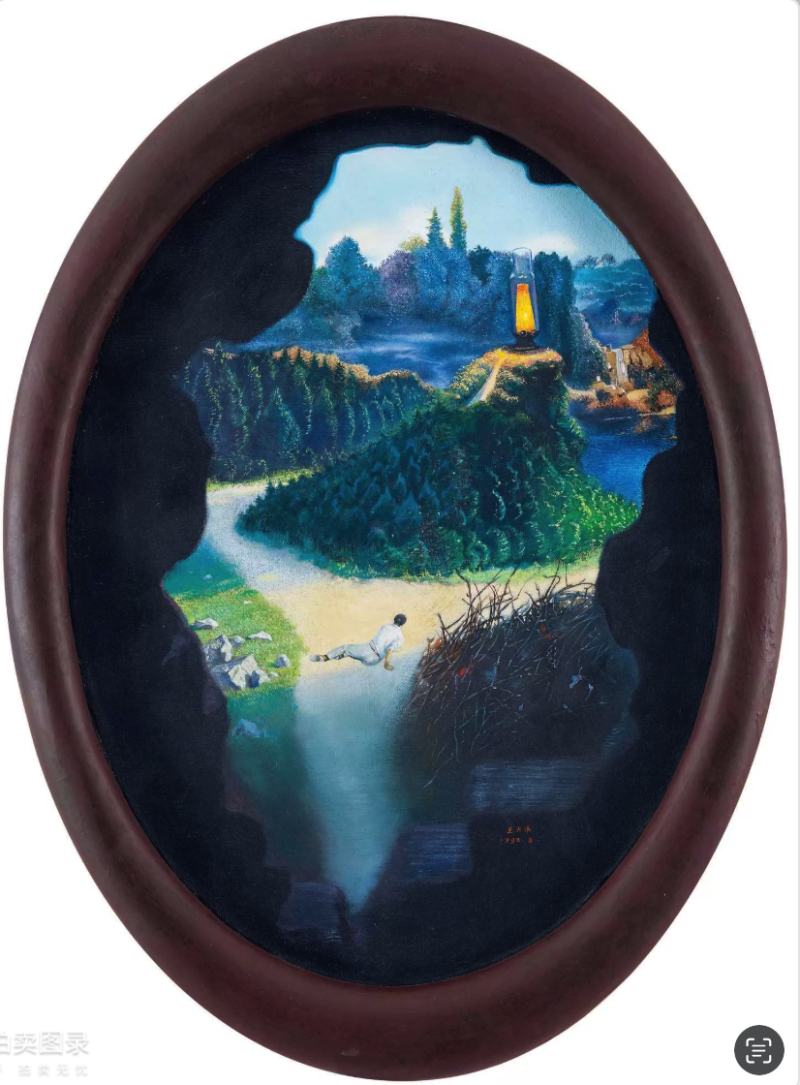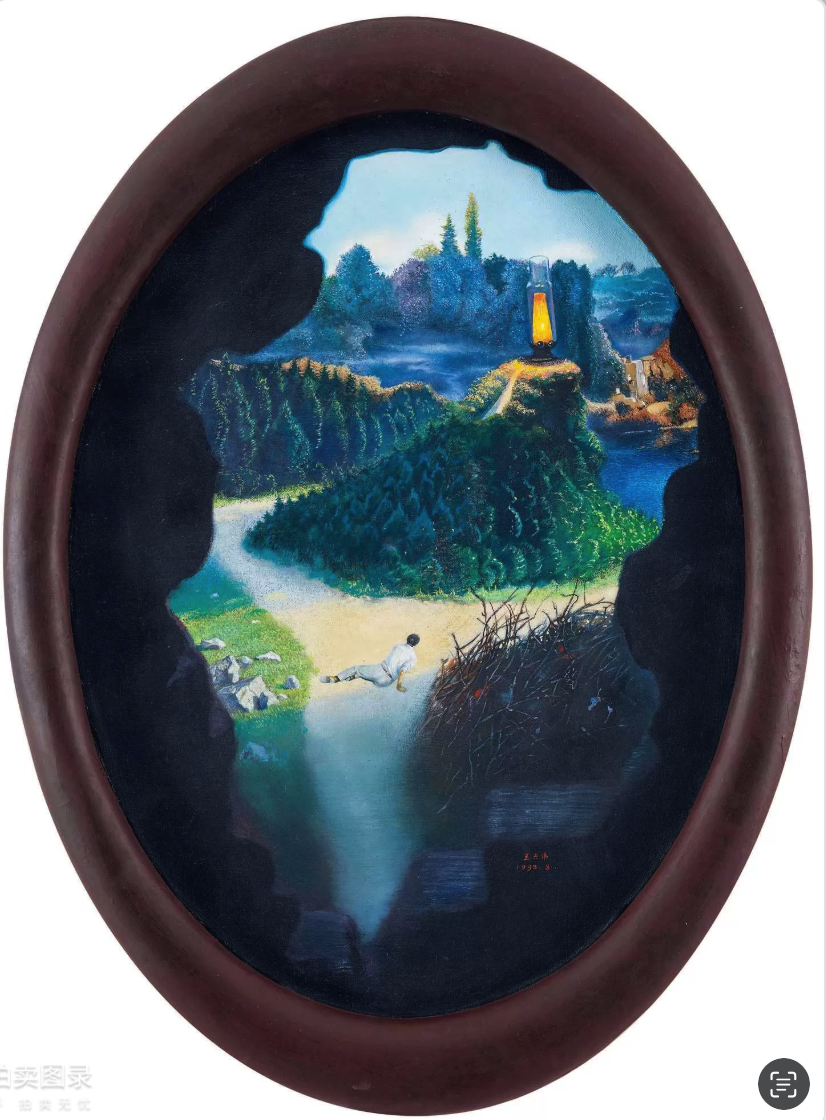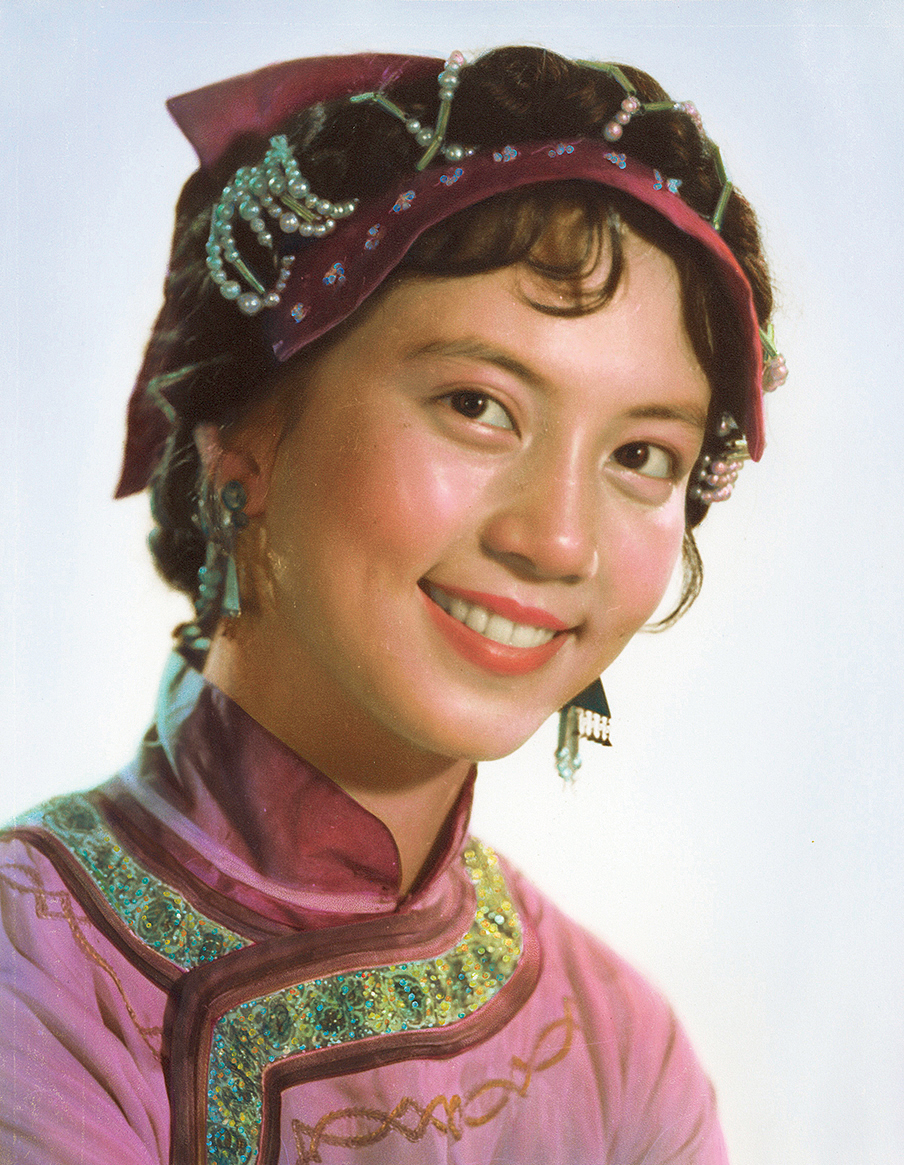
Wang Xingwei
Lighthouse
1998
Oil on Canvas
Wang Xingwei was born in 1969 in Shenyang, Liaoning Province. He graduated from the Fine Arts Department of the Normal College, Shenyang University, in 1990. After teaching at a middle school for a year, he resigned to focus entirely on painting. In 1993, he moved with his wife to Haicheng, Liaoning, where he began to develop his distinctive artistic style. By 1994, he started incorporating iconic imagery from both Chinese and Western art history into his work, employing techniques such as role-playing, appropriation, fabrication, and borrowing to examine his own existential state. His realist and autobiographical paintings—characterized by what became known as Wang-style humor—marked the first mature phase of his artistic career. By the late 1990s, Wang began exploring more popular and contemporary visual narratives, continuously pushing boundaries and innovating, laying the foundation for his later artistic evolution.
This is a highly dramatic and metaphorical work that employs an oval-shaped peephole composition. The darkened edges create the illusion of a cave-like frame, making the scene appear as though it is being observed from a concealed vantage point. At the center of the painting lies a green forest, with a towering structure in the distance emanating a bright light—seemingly a symbol of guidance or hope. However, a man in the foreground is sprawled on the ground, appearing as if he has just struggled free from a thicket of thorns. His posture directly references Andrew Wyeth’s iconic painting Christina’s World. Whereas Wyeth’s Christina embodies a longing for freedom, Wang’s protagonist seemingly finds himself in a more absurd predicament—having escaped the thorns, yet still trapped in an uncertain state, with the path ahead remaining obscure and unreachable. This painting invites contemplation: Is the lighthouse a beacon of hope, or merely an unattainable illusion? In our own lives, do we struggle forward like the figure in the painting, uncertain of where our journey will ultimately lead? Through a surreal composition, a cool and detached color palette, and the appropriation of a classic Western art reference, Lighthouse becomes a philosophical allegory about the human condition.



